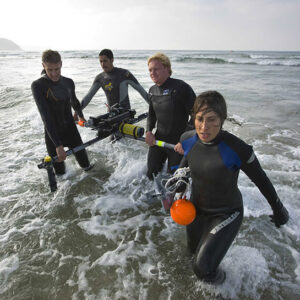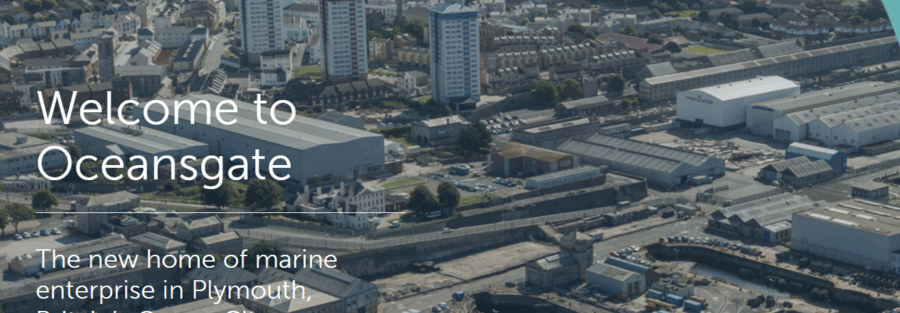When Ella, a young marine engineer from Devon, joined a naval logistics unit in Plymouth two decades ago, the waterfront hummed with tradition but lacked modern energy. Behind the imposing walls of Her Majesty Naval Base (HMNB)Devonport—the largest naval base in Western Europe—was a city still anchored to its past.
Fast forward to today, and Plymouth has re-emerged—not just as a maritime city, but as a nerve centre for marine autonomy and innovation, attracting ocean-tech startups, global players, and researchers eager to shape the future of our seas.
It Began with an Inherited Strength
Plymouth’s maritime pedigree gave it natural potential—naval bases, ocean access, and a cluster of marine science institutions. But the real shift came when city leaders asked: How do we turn legacy into leadership?
This sparked a bold regeneration of the South Yard docklands into Oceansgate—a campus for marine innovation that combined business infrastructure, testing facilities, and deep academic ties.
What Made Plymouth, UK different?
Three deliberate choices helped Plymouth break away from being “just another port”:
- Testbed First, Not Just Talent
Plymouth bet on Smart Sound Plymouth—a connected stretch of sea enabling real-time trials of autonomous vessels, sensors, and underwater communications. Instead of building labs, they made the ocean itself the lab. - Collaboration at the Core
The city embedded its innovation model within a strong public-research triangle: Plymouth Marine Laboratory, University of Plymouth, and the Marine Biological Association became co-anchors alongside the City Council. - SME-Centric Growth
While large corporates joined the movement, the city focused on enabling 400+ SMEs through innovation coaching, access to equipment, and use of Oceansgate’s shared infrastructure.
How They Made It Work
- Government as a Platform
Rather than launching top-down programmes, local leaders created open platforms—like the Marine Business Technology Centre (MBTC)—for innovators to plug into. Funded through regional development programmes, MBTC enabled startups to trial prototypes in real-world marine conditions. - Ocean as Infrastructure
Investments were channelled into capabilities like autonomous vehicle docking, underwater sensor networks, and multi-band comms—turning Plymouth’s sea space into a “living lab” for the marine industry. - Anchored Innovation
Firms like L3Harris, HydroSurv, and Silicon Sensing Systems used MBTC to test and validate marine autonomy tech—ranging from uncrewed vessels to smart navigation systems used in the historic Mayflower Autonomous Ship project.
The Human Outcome
Ella, once a junior officer monitoring naval supply chains, now leads a clean-tech marine startup based at Oceansgate. Her company deploys autonomous vessels to monitor offshore wind farms—faster, cheaper, and greener than traditional survey boats.
Plymouth didn’t chase unicorns. It backed its strengths, bet on the sea, and created a home where marine innovation feels local—but scales global.
Boundaryless Thinking triggers
Focusing on clusters-—marine tech, clean offshore energy, and ocean data—city created magic.
I would like to apply boundaryless thinking
with ideas on: teaming strategy, growing economy, focused innovation
which can be applied in: building on niche, technology depth
in areas like: IT, Telco, Healthcare, Agriculture
Reference
https://www.oceansgateplymouth.com/




